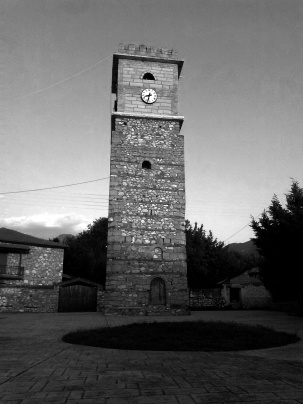Reflections on Assessment in M.Ed. in Distance Education

According to Sally Brown (2005), “assessment is probably the most important thing we can do to help our students learn” (p.81). Using this statement as a starting point, I would like to express my personal opinion and experience, regarding the assessment methods adopted in the M.Ed. in Distance Education of Athabasca University. I have chosen this topic, because I am totally convinced that the successful assessment practices can lead to successful learning outcomes.
From the very beginning of the master’s program I realized the difference in three different areas, considering the field of assessment. The first one is the nature of students’ assessment in the master’s program, including the activities, the marking system, the requirements, the quantity, the frequency, the flexibility, the quality of the assignments, as well as their relevance to the theoretical framework of each course. The second point, I would like to stand on, is the influence of this kind of assessment on me, my personal growth and my learning development. The third point is my personal recommendations or wishes on the program’s assignment processes.
Starting with the structure of the assessment practices in the M.Ed. in Distance Education, I can say that they successfully served and supplemented the aim of the program to provide high quality learning by distance. I came across assessment methods that are similar in their structure. By this, I mean, that our performance and progress in each course was assessed via specific mandatory assignments, forum participation, activities taking place in forums, and some optional activities. The three or four assignments that we were expected to work on were almost evenly distributed during the semester. However, all assignments did not worth the same total number of points, but their value usually depended on the length of the paper and the requirements.
Considering these aspects of assignments, that are the length and the demands of the assignments, I believe that they were suitable for the overall structure of the course, the deadlines, and the topics of the theory. Furthermore, there was help and support offered by our instructors, as for example extended deadline for the completion of the assignments, when we felt that the deadlines were short. This was really helpful for the students with extensive responsibilities in their everyday life and revealed the flexible and self-paced character of the specific master’s program. The grading of the assignments was always fair and based on marking rubrics, which were known to us and described the criteria for the final grade of each assignment. Instructors provided useful constructive feedback, focusing on our errors, which was very useful for us, as it gave us the opportunity to improve our performance in the following assignments.
Moreover, the final assessment of the students in each course was formed from the participation of students in discussion forums, through their posts. This process was truly very constructive and beneficial, as learners had the chance not only to interact with their classmates but also to come across new information and resources for the courses. Finally, there were usually some optional activities, like the moderation of the forums, which could add some points to the final grading.
I would like to admit that, even if some times the assignments and the deadlines of the courses were demanding, I was only benefited from the assessment methods of this program. First of all, English is not my native language, and I had never practiced my English in an academic environment before. In other words, the assignments, the forum discussions, the readings, and the online sessions were always giving me the opportunity to improve my English and my communication skills.
Furthermore, the schedule and the specification of the deadlines helped me to arrange both my everyday responsibilities and my studying, in order to be punctual and have the flexibility to tie up some loose ends. Additionally, this program was the reason behind new friendships and collaborations. The collaborative assignments and the interaction in the forums were an amazing chance to meet new interesting people, interact with them, exchange ideas, share problems and develop strong friendships, which have gone beyond the activities of the master’s program, and generally meaningfully develop my social skills. I had also the chance to meet and interact with eminent professors, who were always willing to lead me to the right directions, enrich my knowledge level and generally inspire and motivate me not only for my academic but also my personal development.
Additionally, my previous experience in the Greek university was totally different from the conditions in the master’s program, regarding the feedback, support, and help from our instructors. I mean that in this program, we were always provided with clear guidelines, direct responses to our problems, flexibility on our work, and detailed comments on our assignments. This situation reveals that my instructors are professionals, who are passionate about their career and learning, and are willing to lay the ground for my learning development, as they stimulate and inspire me.
Considering the influence of the assessment methods on my personal growth in this program, I would like to talk about the APA style, the correct use of which was essential when we were working on our assignments. My partners in the assignments called me “APA GUIDE”, because I always insisted on APA details. This was a significant accomplishment for me, because APA taught me not only to write academically and build more structured assignments, but also to respect the artefacts of other authors, try to decode them, and find the appropriate words to present their meanings. APA style developed my writing skills and my critical thinking and I owe this aspect of my personal development to the assessment requirements of the M.Ed. in Distance Education, which promoted APA style for our written assignments.
I would like to close my personal thoughts about the M.Ed. in Distance Education with some proposals and final comments on the assessment methods. Initially, I believe that each course should include compulsory or optional activities that are collaborative, because the contribution of a team is always stronger than the contribution of each individual. Moreover, I think that the synchronous sessions could me more frequent, because learners have the chance to interact directly with their peers and the instructors. Furthermore, we had the chance to present a video (my Artefact 3) and a podcast instead of a written paper. This process was very interesting and made us understand the strong connections between theory and practice. So, I strongly believe that artefacts in different forms can only positively impact the learning development of the learners. Finally, the e-portfolio, which is the final artefact of the master’s, is very engaging and simulating, because we have the chance to review our overall progress in the program, reflect on it and recognize some of the most remarkable moments.
I am sure that my academic journey just began with this master’s program. I wish this journey will have the ideal destination!
Reference
Brown, S. (2005). Assessment for learning. Learning and Teaching in Higher Education,1, pp. 81-89. Retrieved from http://eprints.glos.ac.uk/3607/1/LATHE%201.%20Assessment%20for%20Learning%20Brown.pdf
Forum Moderation

Forum discussions were a unique experience for me during my M.Ed. Journey. I had the chance to exchange fruitful ideas, to find new resources, to reflect on my classmates’ viewpoints. But, I am absolutely convinced that the most interesting and beneficial part was the special opportunity that I and George were given by our instructor, Dr. Palalas, to co-moderate some of the discussion forums. This process was really stimulating and evolved meaningfully my learning stages. Each time that I co-moderated a unit forum, I was studying the unit’s material and, simultaneously, I was trying to find points for further discussion among learners in the forum. I tried to be objective and decode the posts of my classmates, in order to encourage and motivate them to express their thoughts and provide more relevant information, as well as personal reflections. Moreover, I had to discuss with George both mine and my classmate’s ideas, in order to develop common strategy for commenting on forum posts. I had to think both as an external observer and as an expert of the field, in order to find some “gaps” that would call for further discussion and deeper reflection. The whole experience as a forum moderator indeed improved my skills and revealed to me some skills that I did not know I had. I hope that I will have a similar experience in my future career too!
International Association for Blended Learning Conference (IABL)

The Master in Distance Education gave me the opportunity to learn about the International Association for Blended Learning Conference, which was held for the first time in Kavala. The minute I heard about the IABL I was mesmerized! I wanted to submit a paper; I wanted to participate in it; I wanted to contribute to its organization. I was very glad that the IABL was held in my city, Kavala, so I did not have to think about place limitations. George and I decided to submit a paper together and… it was accepted! I have to admit that we celebrated by distance 🙂 . It was our first participation in an international conference and it was also a chance to meet each other in Kavala.
IABL2016 was also the great circumstance to meet in person some other classmates too. Besides George, Maria was also one of my classmates that I deeply wanted to meet in person. I loved her during our distant discussions and collaborations. She became and still is a precious friend of mine, and IABL2016 was our first face-to-face meeting. Chrysa and Thalia were also previous students of the M.Ed. and they inspired me with their lectures during the discussion panel to do my best. They became valuable friends too!
Of course, meeting my instructors in person was more than meaningful to me. Dr. Tsinakos, Dr. Palalas, Dr. Cleveland, Dr. Ally… So important people in the contexts of my studies in the M.Ed. I had the chance to discuss with them, to be inspired by them, and even hug them 🙂 . I feel really blessed.
Finally, the particular conference improved many of my skills. I participated as a presenter, as a panel speaker, as a chair, as a member of the audience, as a workshop moderator. So many roles and so many beneficial stimuli for my development! Specifically, this conference motivated me to participate in more conferences too. So, I had the chance not only to participate in IABL2017 but also to participate collaboratively with Chrysa in Greek conferences, in order to inform Greek people about distance education topics!